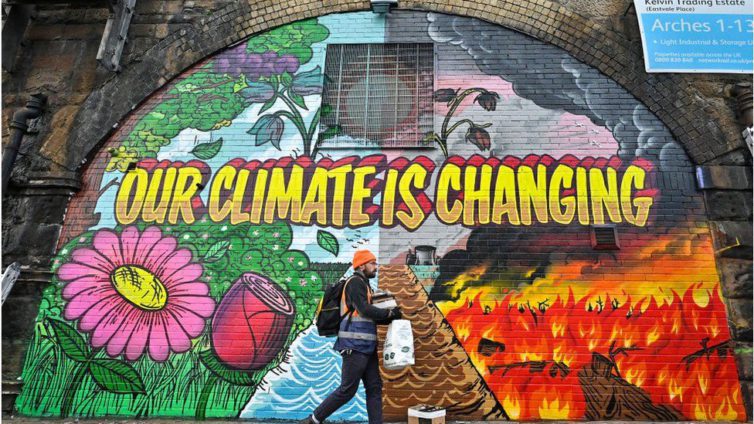The Chair of the African Group of Negotiators on Climate Change (AGN), Ephraim Mwepya Shitima, says the Global Stocktake (GST) is a critical turning point in efforts to address climate change.
He has therefore called on African parliamentarians to take keen interest in the GST process and its outcome as it enables countries and other stakeholders to assess their collective progress towards meeting the goals of the Paris Agreement.
Speaking at the Pan-African Parliamentarians Summit on Climate Policy and Equity in Midrand, South Africa, Shitima said the GST aims to strengthen the global response to the threat of climate change, in the context of sustainable development and efforts to eradicate poverty.
He reiterated the AGN’s call against inherent bias in favour of mitigation at the expense of adaptation.
“As Africa, we expect the GST to be comprehensive by assessing collective progress towards all the goals and not focusing on one or two,” said Shitima.
“The outcome must be corrective—how to address the identified gaps and ensure implementation. The inherent bias in favour of mitigation ought to be rectified while the needs of adaptation and recognition of adaptation actions as part of the contribution of Parties towards the global effort should be accorded sufficient attention.”
The global stocktake, as enshrined in Article 14 of the Paris Agreement, is a process for taking stock of the implementation of the Paris Agreement with the aim to assess the world’s collective progress towards achieving the purpose of the agreement and its long-term goals.
The first stocktake got underway at the UN Climate Change Conference in Glasgow in November, 2021 and is expected to conclude at COP28. Each stocktake is a two-year process that happens every five years.
In addition to his call for African Parliamentarians to actively get involved in the GST process, the AGN Chair also highlighted the climate financing and adaptation gaps as revealed by various reports including the Intergovernmental Panel on Climate Change (IPCC) Sixth Assessment Report (AR6).
“The United Nations Environment Programme (UNEP’s) Adaptation Gap Report 2022: Too Little, Too Slow – Climate adaptation failure puts world at risk finds that the world must urgently increase efforts to adapt to impacts of climate change. Implementation of adaptation actions are concentrated in agriculture, water, ecosystems- with health and education still remaining underfunded. However, without a step change in support, adaptation actions could be outstripped by accelerating climate risks, which would further widen the adaptation implementation gap,” said Shitima.
He further lamented the poor provision of climate information in Africa, which is hindered by limited availability of weather and climate data, adding that existing weather infrastructure is insufficient for development of reliable climate information and early warning systems.
“For example, only 10% of ground-based observation networks are in Africa - the remaining 90% are outside Africa -, and that 54% of Africa’s surface weather stations cannot capture data accurately,” he said.
Without belabouring the point, adaptation finance is inadequate to meet growing needs of African countries as access to adequate financial resources is crucial for climate change adaptation.
“UNEP estimates adaptation costs for Africa to be, from USD 20–50 billion per year by 2050 at 1.5℃ to USD 100–437 billion per year at 4℃ of global warming above pre-industrial levels. However, adaptation finance flows to developing countries are 5-10 times below estimated needs and the gap is widening,” lamented the AGN Chair.
Meanwhile, the Executive Director of the Pan African Climate Justice Alliance (PACJA), Mithika Mwenda, said the African continent was already living in a critical moment as a result of climate change.
“The Sixth synthesis report of the Intergovernmental Panel on Climate Change (IPCC) released on 23rd March this year confirmed human-induced global warming is already causing widespread and irreversible impacts on our natural and human systems, and these impacts will only worsen with further warning," said Mithika.
Latest Stories
-
Ghana’s Ibrahim Fuseni delighted after breaking 100m 10-second barrier
48 minutes -
2025 #NSMQ Regionals: Over 250 schools chase glory, brains, and bragging rights
1 hour -
Richie Mensah opens up about why he withdrew from MUSIGA Vice President race
2 hours -
RMU Chancellor challenge graduates to be Change-Makers in Maritime industry
3 hours -
Bright Simons: Ghana looks on as its brand appeal of its higher-ed offering fritters away
4 hours -
IAAS-UG leadership steps up with mask distribution as COVID-19 resurges on campus
5 hours -
Galamsey: Police arrest 4 Chinese nationals; equipment destroyed in separate Tarkwa operation
5 hours -
Ho Zongo slaughterhouse demolished
5 hours -
West African gov’ts must push for harmonised visa regimes, cross border connectivity – GTA
5 hours -
A brief history of the F1 Community and Motorsport Federation of Ghana
6 hours -
F1: The movie premieres to a sold-out crowd at Silverbird Cinemas Accra Mall
6 hours -
GEA CEO Margaret Ansei declares MSMEs ‘heartbeat of Ghana’s economy’ at national event
6 hours -
Veep backs academic freedom, launches fresh call for university autonomy
8 hours -
Afia Ayiwah’s ‘Testify’ wins hearts as gospel fans embrace uplifting new single
8 hours -
Van-Etten club triumphs as Obuasi Cricket Festival end on a high
11 hours

